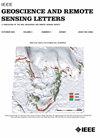An Online Distributed Satellite Cooperative Observation Scheduling Algorithm Based on Multiagent Deep Reinforcement Learning
IF 4
3区 地球科学
Q2 ENGINEERING, ELECTRICAL & ELECTRONIC
引用次数: 10
Abstract
The provision of real-time information services is one of the crucial functions of satellites. In comparison with the centralized scheduling, the distributed scheduling can provide better robustness and extendibility. However, the existing distributed satellite scheduling algorithms require a large amount of communication between satellites to coordinate tasks, which makes it difficult to support scheduling in real-time. This letter proposes a multiagent deep reinforcement learning (MADRL)-based method to solve the problem of scheduling real-time multisatellite cooperative observation. The method enables satellites to share their decision policy, but it is not necessary to share data on the decisions they make or data on their current internal state. The satellites can use the decision policy to infer the decisions of other satellites to decide whether to accept a task when they receive a new request for observations. In this way, our method can significantly reduce the communication overhead and improve the response time. The pillar of the architecture is a multiagent deep deterministic policy gradient network. Our simulation results show that the proposed method is stable and effective. In comparison with the Contract Net Protocol method, our algorithm can reduce the communication overhead and achieve better use of satellite resources.基于多智能体深度强化学习的在线分布式卫星协同观测调度算法
提供实时信息服务是卫星的重要功能之一。与集中式调度相比,分布式调度具有更好的鲁棒性和可扩展性。然而,现有的分布式卫星调度算法需要大量的卫星间通信来协调任务,难以支持实时调度。本文提出了一种基于多智能体深度强化学习(MADRL)的多卫星实时协同观测调度方法。该方法使卫星能够共享它们的决策策略,但不需要共享它们所做决策的数据或它们当前内部状态的数据。当接收到新的观测请求时,卫星可以使用决策策略来推断其他卫星的决策,以决定是否接受任务。通过这种方式,我们的方法可以显著降低通信开销并提高响应时间。该体系结构的支柱是一个多智能体深度确定性策略梯度网络。仿真结果表明,该方法稳定有效。与契约网协议方法相比,该算法可以降低通信开销,更好地利用卫星资源。
本文章由计算机程序翻译,如有差异,请以英文原文为准。
求助全文
约1分钟内获得全文
求助全文
来源期刊

IEEE Geoscience and Remote Sensing Letters
工程技术-地球化学与地球物理
CiteScore
7.60
自引率
12.50%
发文量
1113
审稿时长
3.4 months
期刊介绍:
IEEE Geoscience and Remote Sensing Letters (GRSL) is a monthly publication for short papers (maximum length 5 pages) addressing new ideas and formative concepts in remote sensing as well as important new and timely results and concepts. Papers should relate to the theory, concepts and techniques of science and engineering as applied to sensing the earth, oceans, atmosphere, and space, and the processing, interpretation, and dissemination of this information. The technical content of papers must be both new and significant. Experimental data must be complete and include sufficient description of experimental apparatus, methods, and relevant experimental conditions. GRSL encourages the incorporation of "extended objects" or "multimedia" such as animations to enhance the shorter papers.
 求助内容:
求助内容: 应助结果提醒方式:
应助结果提醒方式:


